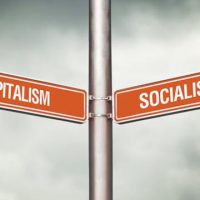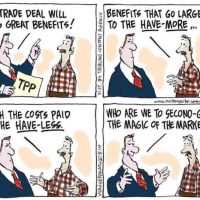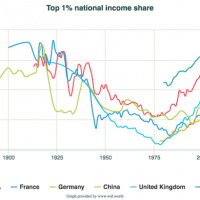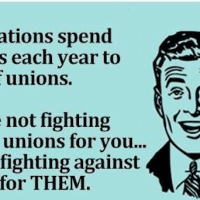-
Imperialism today: a critical assessment of Latin American dependency theory
The main theorist of dependency anticipated trends of neoliberal globalization. He analyzed productive globalization, the centrality of exploitation and the relative weight of surplus value transfers. But the employment crisis exceeds what was envisaged by Marini, in a scenario disrupted by the mutation of the United States, the collapse of the USSR and the rise of China.
-
Dossier 1: Crisis in the Korean Peninsula
The crisis is not merely geopolitical. It is human. 75 million people live in the peninsula. This is about their lives and futures.
-
Biofinance
Capitalism has been the subject of too many conflicting definitions for any of the claims that follow to have any purchase on truth — understood as an adequation to the real. Beneath the numerous disagreements, however, a common substratum can be gleaned between the liberal Smithian, and the classical Marxist and Weberian positions: capitalism is a system geared at fostering accumulation for its own sake.
-
Willetts the conqueror (part 3): human capital
The following post is the third instalment of the multi-part review of David Willetts’ ‘A University Life’, you can find here the Introduction; Part 1 and Part 2. Parts 3 and 4 take a slightly different approach, diving deeper into the fundamental principles of marketisation, which centre on the conversion of qualitative experience and practice into quantitatively measurable outcomes, which can in turn become proxies for higher education’s exchange value.
-
2008 financial collapse all over again…? We need to understand the student loan speculation bubble
For those who may have missed it, a major economic indicator emerged regarding student loan debt last week. Excessive debt, like student loans, has become one of the biggest barriers to current economic growth in the United States. On Thursday, March 1, 2018, the Chairman of the Federal Reserve, Jerome Powell, appeared before U.S. Congressional representatives.
-
Utopia and healthcare (part 1)
I’ve written quite a bit about the U.S. healthcare dystopia over the years—including a seven-part series back in 2016.* But I haven’t yet addressed the utopian dimensions of healthcare reform.
-
Willetts the conqueror: introduction
Before Jo Johnson and Sam Gyimah, there was David Willetts. As the Minister of State for Universities and Science from 2010 until 2014, under the Tory-led ‘coalition’ government, Willetts oversaw the introduction of a market into the English higher education system – often referred to as ‘marketisation’.
-
“The Left is a bit stuck in what needs to be done today”
In September 2017, Tariq Ali visited our office in São Paulo for a long conversation. Here’s what he said about Chávez, Lula and the end of the “pink tide” in Latin America
-
What do we mean by socialism?
What the hell is socialism, anyway? Over the last decade, it has been one of the most frequently looked up words in the Merriam-Webster dictionary. And it’s easy to see why so many people feel the need for clarification.
-
Oscar Lopez Rivera calls U.S. intervention in Puerto Rico ‘biggest experiment in neoliberalism’
Oscar Lopez Rivera, the anti-colonial leader from Puerto Rico, has criticized the United States’ callousness and “experimental” approach towards the U.S. colony.
-
U.S. workers and their decades of lost earnings
It happened gradually, but thanks to the U.S. media, economic news has largely been reduced to stock market reporting. Want to know how the economy is doing? Check the S&P 500 Index. Want to know whether the latest Trump proposal is good or bad? Check the S&P 500 Index.
-
Where does women’s oppression come from?
The liberation of women must be at the heart of the struggle for socialism, argues the MARX MEMORIAL LIBRARY
-
Utopia and trade
Donald Trump’s decision to impose import tariffs—on solar panels and washing machines now, and perhaps on steel and aluminum down the line—has once again opened up the war concerning international trade.
-
Bubbles, stocks and crashes
WHAT is happening in the U.S. economy provides an object lesson on the functioning of neo-liberal capitalism. Pre-first world war capitalism which had witnessed the long Victorian and Edwardian boom had relied on the colonial arrangement for the system’s dynamics.
-
The robot, unemployment, and immigrants
For every industrial robot introduced into the workforce, six jobs are eliminated. – Since a few days, Amazon has started Amazon Go. The idea is simple: a shop where you go in, take whatever you want from the shelves, and the cost goes automatically to a magnetic card that you carry.
-
The political economy of space and time in Eduardo Galeano
Uruguyan novelist and historian Eduardo Galeano (1940–2015) wrote more than 40 books. Monthly Review lauded his creative non-fiction Open Veins of Latin America: Five Centuries of the Pillage of a Continent (1973[1971]) as ‘outstanding political economy … and perhaps the finest description of primitive capital accumulation since Marx’.
-
Finding ways to be one: The making of Cedric J. Robinson’s radical Black politics.
Historian Robin D.G. Kelley explores the radical Black politics of scholar Cedric J. Robinson—from his historical understanding of race and capitalism as inherently inseparable systems, to his vision of the possibilities of politics, rooted deep in struggles past and present.
-
Utopia and inequality
Economic inequality is arguably the crucial issue facing contemporary capitalism—especially in the United States but also across the entire world economy.
-
Janus and fair share fees
Over the last decade, a number of cases attacking the rights of public-sector union members have been quietly working their way through the courts and, finally, up to the U.S. Supreme Court.
-
Why is there always an economic crisis of some sort?
Unlike liberal economists, Marxists explore the primary role of internal contradictions within the capitalist economy. The MARX MEMORIAL LIBRARY explains why.




















